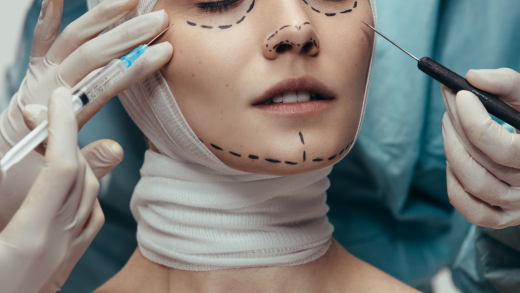Cosmetic surgery can be an exciting process, but it’s easy to get overwhelmed and anxious when preparing for your first procedure. When undergoing surgery, it’s important to understand what you can expect to have to happen, what steps you need to take to prepare, and what questions you should ask before scheduling your appointment.
What Is Cosmetic Surgery?
Cosmetic surgery can take many forms and is often used to treat a variety of conditions. Some common procedures include facial enhancement/lifting, liposuction, breast augmentation (if interested, have a look at centers for breast augmentation London), and nose surgery. More complex procedures might include liposuction to ablate or remove the nasal hump, a facelift that tightens the muscle and tissue of the facial muscles, and specialized liposuction that targets fat in the cheeks and chin.
Cosmetic surgery has become increasingly popular among both men and women. However, before you decide that this is the route for you, you should be aware of what exactly it is and what it is not. Cosmetic surgery is defined as any surgery done for a physical reason to improve cosmetic aspects. In other words, plastic surgery is surgery that looks “good.” Non-cosmetic surgery, on the other hand, is surgery done for a medical reason, such as to correct a physical deformity.
Preparing for a cosmetic surgery procedure can seem overwhelming, but it doesn’t have to be. Follow these six tips so you’re ready and know what to expect before, during, and after your surgery.
- Research your procedure. When choosing a cosmetic procedure, it is essential to do your research. You need to know where you are stepping and how much that step might cost you. If, for example, you have been considering opting for liposuction in Torrance, CA (or your specific location), it is essential to understand the advantages of the procedure and gather information about the potential costs involved. Cosmetic surgery can sometimes be costly, so it is important to be educated. Equipping yourself with the right pieces of information can enable you to make decisions that promote your well-being.
- Research your surgeon. Depending on the type of plastic surgery you want, you may need to find a reliable professional specializing in that particular area. For instance, if you want breast augmentation in Chicago, IL, you would require a different surgeon than when you need rhinoplasty in Los Angeles, CA. Finding the right surgeon is important because it can make the difference between a successful and unsuccessful procedure. It is also important to read reviews and talk to other patients who have had the same procedure. Chances are, if you are having surgery, you will be in this person’s care for an extended period of time. So, it’s important to find a surgeon you can trust with your health and well-being.
- Talk with others who have had the same procedure. Whether it’s elective or lifesaving, prepare for surgery by talking to others who have had the same procedure. Talk to others who have had the same procedure. Read what patients have to say about their experience with procedures like Botox, tummy tuck, and rhinoplasty in Beverly Hills or elsewhere. Find out what people are saying about their experiences with plastic surgeons. How others feel about their experiences can help you better prepare as well.
- Schedule your surgery date. If you’ve decided to undergo a cosmetic procedure, you probably have a lot of thoughts and questions running through your mind. You probably also know that there are a lot of details to plan for both before and after the surgery, including scheduling a date for your surgery. You can usually choose the date of your procedure during your consultation appointment, but taking this step ahead of time will give you more time to solidify all of your other plans.
- Arrange for transportation to and from your procedure. Whether it’s for cosmetic reasons or medical reasons, plastic surgery is a medical procedure that will require significant recovery time. While recovery time varies greatly between surgeries, the recovery period for plastic surgery is anywhere from two weeks to three months. To help your recovery go smoothly, you should arrange for transportation to and from your procedure.
- Make a packing list. Researching, planning, and preparing for plastic surgery can seem overwhelming. Fortunately, it doesn’t have to be. In fact, following a plan can help you feel more at ease and in control. What’s most important is that you before and aftercare. Before your procedure, it’s important to know what to pack. You’ll want all your essentials-including your medications-for the duration of your recovery. Find out which cosmetic procedures might benefit you.
Cosmetic surgery is any surgery that changes your appearance. Cosmetic surgery can correct a deformity, improve a flaw or change the appearance of a part of the body that is unpleasing to you. For example, you might undergo a rhinoplasty (surgery to improve the shape of the nose) or a facelift (surgery to improve or restore a youthful, rested appearance to the face and neck). Most cosmetic surgeries are elective, but not all elective surgeries are cosmetic.





